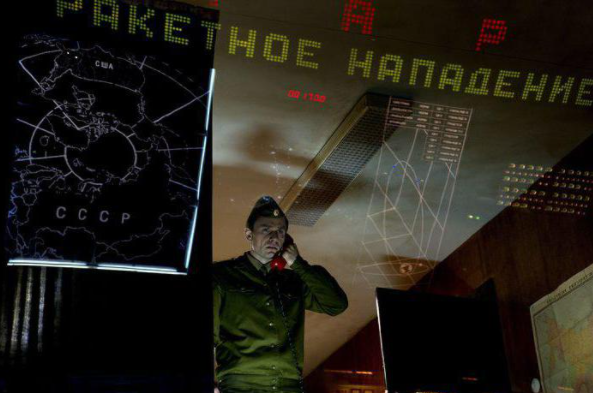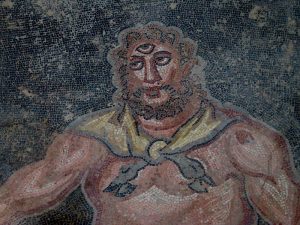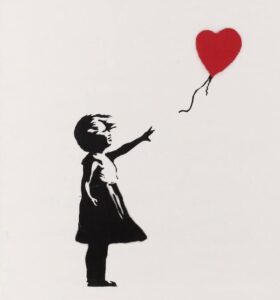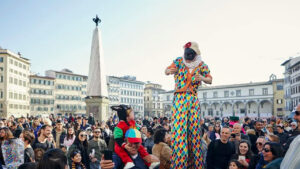STANISLAV PETROV, THE MAN WHO SAVED THE WORLD FROM NUCLEAR WAR
5 min read
September 26th 1983, 00:15: It is just after midnight when Lieutenant-Colonel Stanislav Petrov, then an analyst at Serpukhov-15, a Soviet military base near Moscow, notices that something is wrong. Suddenly, the Soviet defence system that Petrov was tasked with monitoring reports an ongoing enemy attack by the US, its historic rivals. The OKO radar-satellite system, “eye” in Russian, indicates that a nuclear missile has just been launched from the Malmstrom base in Montana. A few moments later, OKO detects the enemy launch of another four missiles: a few minutes and they will crash into Soviet territory.
Petrov is undaunted, and despite the dissenting opinion of the technicians working alongside him, he calmly dismisses the American threat as unfounded. To Petrov, it can only be a false alarm, but he is not certain. The lieutenant-colonel’s intuition, in fact, is only an intuition, supported by a precise logic, of course, but an intuition nonetheless, a risky and dangerous one: at stake, in that moment, not only there is the fate of the Cold War but also the lives of millions of people.
US-USSR relationships
To better understand the pressure and the weight that Petrov must have inevitably felt on his shoulders that night, it is necessary to take a closer look at that historical period. At that time, the atmosphere between the two superpowers was anything but peaceful: the Cuba crisis was now a distant memory but the US and USSR still regarded each other with suspicion. In 1983, the year of the events, US President Ronald Reagan, referring to the Soviets, called the USSR the “Evil Empire”. In 1983, the Soviet side also considered an American attack to be possible: only a few weeks earlier, a foreign plane flying in Soviet airspace had been shot down on the suspicion that an enemy spy plane might be behind it. Despite the years that have passed since the end of the Second World War, therefore, the US and the USSR are still engaged in the Cold War, and the nuclear deterrent still stands between the two countries, preventing a peaceful dialogue between Washington and Moscow. The balance of terror prevails and the threat that one of the two powers might attack the other is still an option that weighs heavily in international relations and geopolitical issues.
A hard choice
It is in this sense that Petrov’s choice takes on even greater value, revealing an uncommon coldness and aloofness. Perhaps the easiest choice for Petrov, but certainly the riskiest for the fate of the world, would have been to adhere rigidly and scrupulously to the protocol which, in cases like these, required the Soviet High Command stationed in the Kremlin to be promptly informed of the situation. Considering the tensions involved, it is likely that Moscow would have responded to the US by unleashing a fast and massive nuclear counter-offensive to try and immediately knock out the enemy. The truth, however, was that no matter how rapid and violent the Soviet retaliation might be, the enemy would still have a certain amount of time left to respond to the (this time real) threat: the result would have been nuclear war and, according to technical jargon, mutually assured destruction. With his lucid and cold analysis, Petrov nipped events in the bud and prevented them from taking an unexpected and extremely dangerous turn, but, despite this, his action was not as appreciated by the military leadership.

“The autumn equinox incident”
The incident that night was immediately hushed up: it could have revealed the limitations and shortcomings of the Soviet defence system and embarrassed Moscow in the eyes of international public opinion. Petrov was first involved in the enquiry into the incident, then criticised for failing to follow procedures and finally reprimanded for failing to record the incident correctly. The enquiry established that the system malfunction had been caused by a particular astral conjunction, hence the name “Autumn Equinox Incident”, but it made no difference to Petrov: he was later dismissed from his military career under false pretences and given an early discharge from the Red Army. For several years, not even Petrov’s family knew anything about the incident. Considered inconvenient, the incident remained hidden until the collapse of the USSR and, apart from some recognition abroad, Petrov was never awarded any honours in Russia.

Interviewed about the incident he said with great humility: “I did nothing special, but my job. […]. I was the right man, in the right place, at the right time”. That night, in fact, at the Serpukhov-15 control post there was not, as usual, a dutiful military officer watching over the radars, but Stanislav Petrov, who just happened to be on duty that night. Despite the repeated warnings, Petrov, as a very shrewd and intuitive analyst, realised that the warning from the defence system was only a false alarm, thus avoiding alerting his superiors. After all, Petrov believed that a limited US attack would have affected Soviet territory, but would have also exposed the US to a massive USSR reaction.
Petrov’s next “fifteen minutes of waiting [for a possible detonation] were very long” – we can imagine, but luckily he was there that night at Serpukhov-15 to decide everyone’s fate. With this article, 38 years after the incident, we would like to pay a small tribute to Stanislav Petrov, the man who saved the world from nuclear war on September 26th, 1983.
Source text: STANISLAV PETROV, L’UOMO CHE SALVÒ IL MONDO DALLA GUERRA NUCLEARE by Daniele Catalano
Mi chiamo Giorgia Padovani e sono appassionata di lingue straniere da sempre. Nel corso degli anni ho studiato diverse lingue, arrivando a conseguire una laurea magistrale in interpretariato e traduzione con inglese e russo. Sono curiosa di natura e penso che ogni occasione sia buona per imparare qualcosa di nuovo. Ho vissuto le esperienze migliori della mia vita all’estero, prima in Cile e poi a Londra. Credo fortemente che il mondo sia troppo grande e vario per rimanere sempre e solo in un posto. Per questo mi definisco radicata, ma con lo sguardo rivolto al mondo. Tra le mie passioni, oltre ai viaggi, ci sono la lettura, la fotografia, il cinema e i musical







